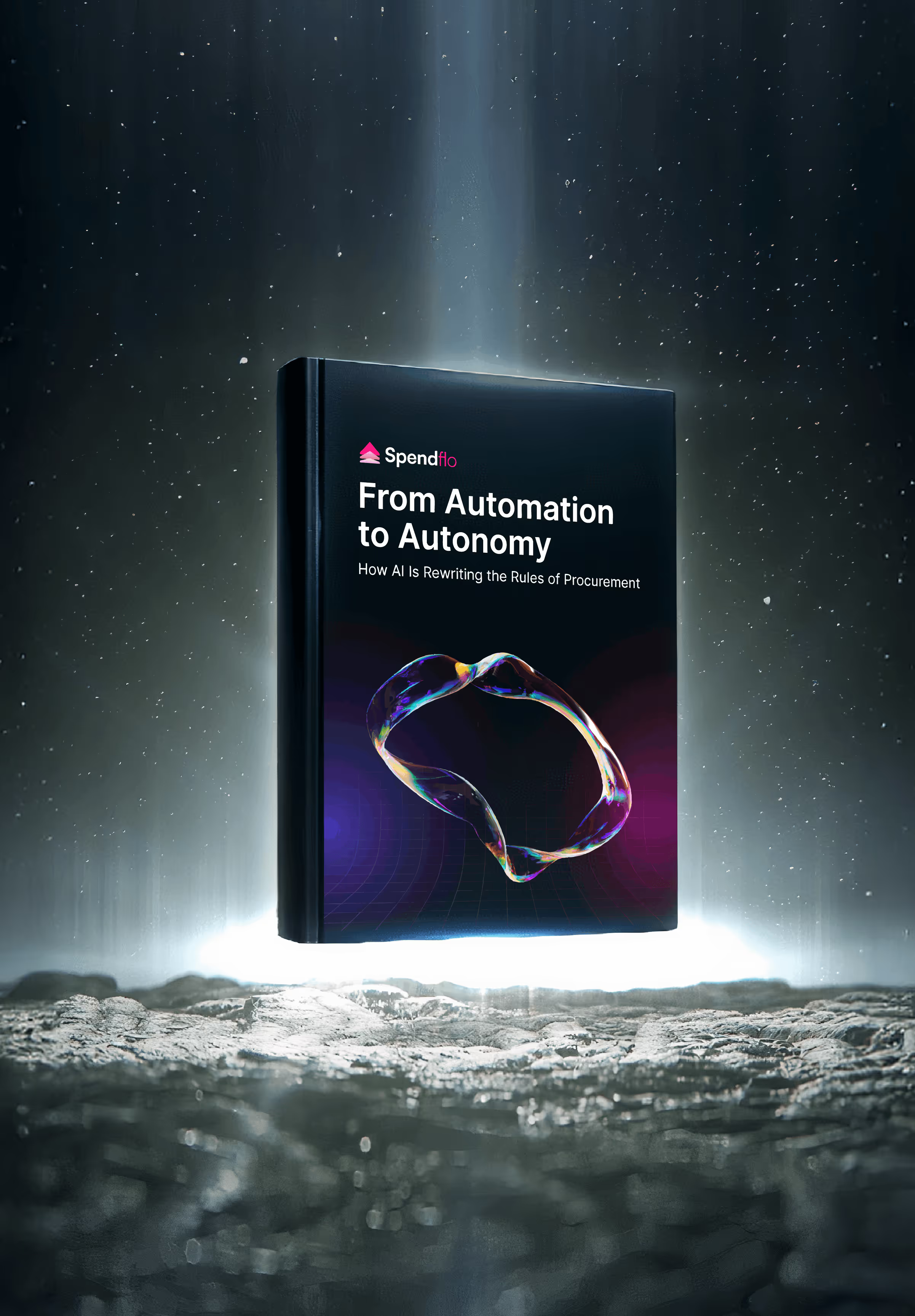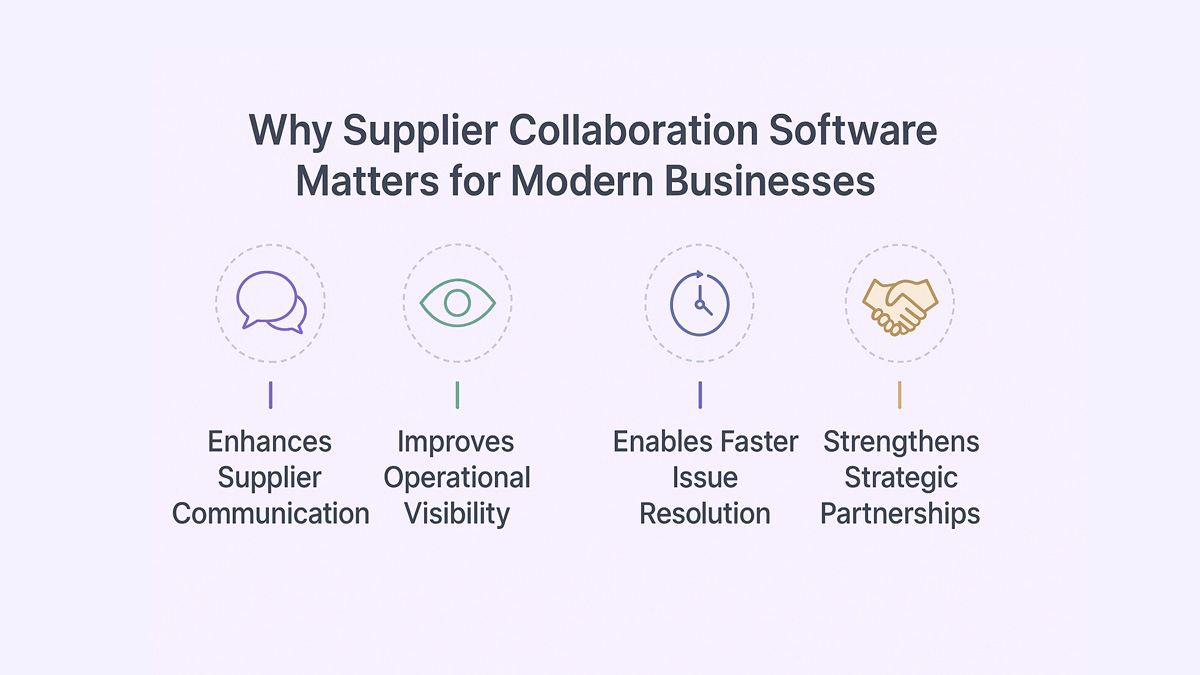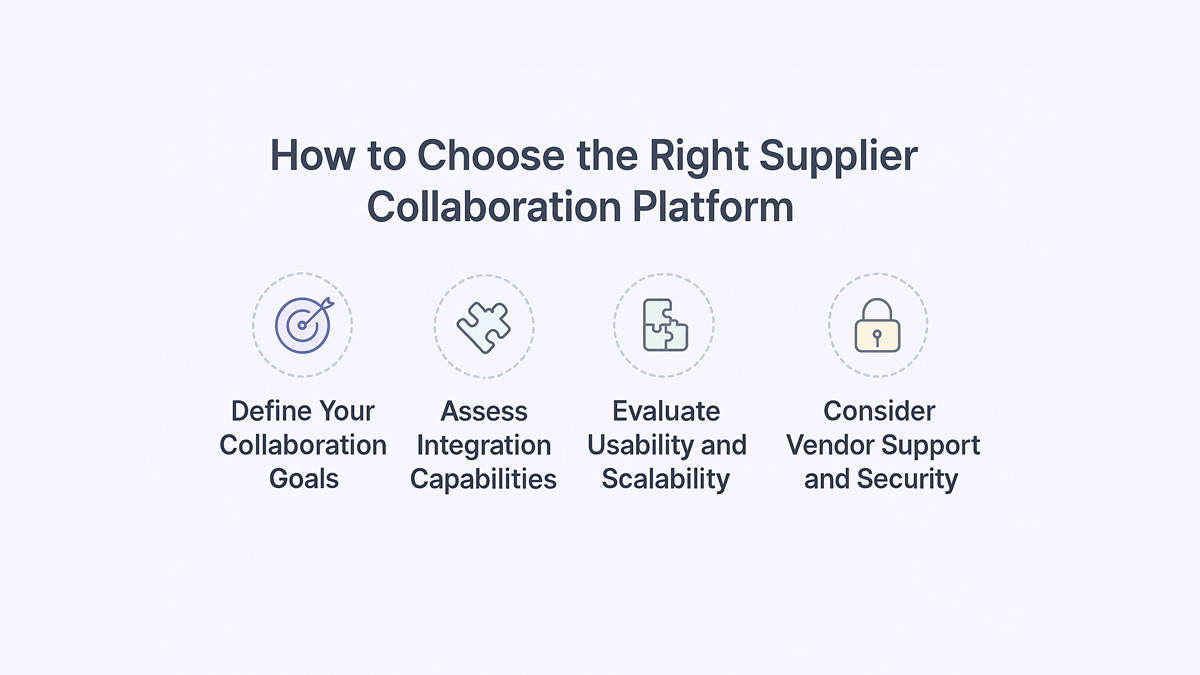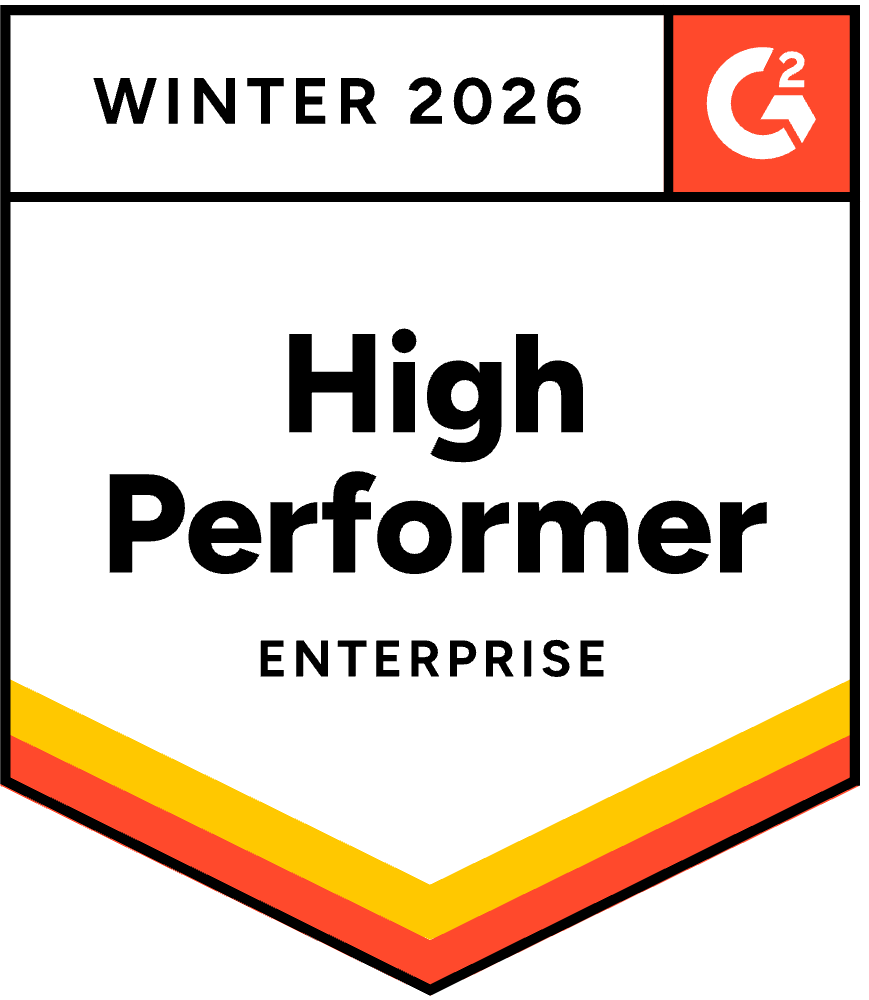

Best Supplier Collaboration Software for 2026: Tools That Transform Vendor Relationships

Best Supplier Collaboration Software for 2026: Tools That Transform Vendor Relationships
Discover the best supplier collaboration software for 2026 to enhance visibility, reduce costs, and strengthen vendor partnerships.


In today’s fast-moving supply chains, collaboration isn’t just a nice-to-have - it’s a competitive advantage. As businesses depend more heavily on external partners, the ability to communicate, coordinate, and execute seamlessly with suppliers can make or break procurement success. That’s where supplier collaboration software steps in, bridging operational gaps and helping teams stay ahead.
What this blog covers:
- What is supplier collaboration software
- Why supplier collaboration software is essential
- How to choose the best supplier collaboration software
- Top supplier collaboration software for 2026
- How Spendflo helps streamline supplier collaboration
- Frequently asked questions on supplier collaboration software
What is Supplier Collaboration Software?
Supplier collaboration software helps businesses manage, communicate, and collaborate with suppliers in real time. These platforms streamline procurement tasks, improve visibility across the supply chain, and enable better decision-making through shared data, workflows, and insights.
Why Supplier Collaboration Software is Essential
Supplier collaboration software isn’t just another procurement tool - it’s a foundational system for modern, agile businesses that rely on external vendors for everything from raw materials to SaaS products. By streamlining communication and creating shared visibility, these platforms allow teams to build stronger, more responsive partnerships with suppliers.
Here’s why supplier collaboration software plays such a critical role today:

Enhances Supplier Communication
Clear, consistent communication is the cornerstone of strong supplier relationships. These platforms centralize messages, updates, and feedback loops, reducing confusion and ensuring everyone is on the same page - no more chasing down email threads or missed calls. This coordination reduces delays and protects against unexpected supply chain disruption. Some systems now use machine learning to personalize supplier communication workflows. Others are embedding artificial intelligence to proactively identify risks and recommend optimization actions.
Improves Operational Visibility
With a shared dashboard, both buyers and suppliers can track order statuses, delivery timelines, invoice approvals, and more. This transparency directly improves vendor relationships through accountability and trust. This visibility helps reduce delays, anticipate issues early, and manage expectations on both sides.
Enables Faster Issue Resolution
When something goes wrong - whether it’s a late shipment or a price mismatch - collaboration tools make it easier to flag the problem, tag stakeholders, and resolve it quickly without endless back-and-forth.
Strengthens Strategic Partnerships
Beyond managing day-to-day transactions, supplier collaboration software lays the groundwork for long-term partnerships. Shared platforms also support demand forecasting by aligning planning cycles with suppliers. With performance metrics, shared forecasts, and collaborative planning features, both parties can align on bigger goals and grow together. Effective document management also ensures smoother audits and fewer data gaps.
How To Choose The Best Supplier Collaboration Software?
With dozens of tools available, choosing the right supplier collaboration software can feel overwhelming. But narrowing it down becomes much easier when you focus on your organization’s specific needs, workflows, and supplier ecosystem.
Here’s what to keep in mind when evaluating platforms:

Define Your Collaboration Goals
Are you looking to reduce lead times, improve forecast accuracy, or simply centralize communication? Some platforms also support supplier risk assessments to reduce exposure to disruptions. Identifying clear goals upfront helps you assess whether a platform’s features align with your business priorities.
Assess Integration Capabilities
A great collaboration tool should play well with your existing stack. Whether it’s your ERP system, inventory management, or procurement tools - seamless integration ensures smooth data flow and reduces duplication of effort.
Evaluate Usability and Scalability
The best software won’t help if no one uses it. Look for intuitive interfaces and onboarding support. Also, ensure the tool can scale with your business - what works for a team of 10 might not work for a global supply chain with hundreds of vendors.
Consider Vendor Support and Security
Vendor responsiveness can make or break your experience, especially during implementation or when troubleshooting issues. And since supplier tools often deal with sensitive financial and operational data, robust security features are non-negotiable.
Top Supplier Collaboration Software For 2026
From streamlining workflows to unlocking vendor visibility, the best supplier collaboration tools are reshaping how procurement and supply chain teams operate. These tools play a critical role in improving overall supply chain management. Whether you’re a scaling startup or an enterprise dealing with hundreds of suppliers, the right platform can turn collaboration from a challenge into a competitive edge.
Here are the top supplier collaboration platforms for 2026 - who they’re built for and what makes them stand out.
1. Spendflo
Spendflo is an all-in-one SaaS buying and vendor management platform built to help fast-growing companies reduce software costs and collaborate more effectively with suppliers. It also functions as robust vendor management software for modern procurement teams. With deep insights into contract lifecycles, supplier performance, and spend data, it empowers procurement teams to negotiate smarter, track renewals, and manage suppliers from one place.
About the Company – Type: Private | Year Founded: 2020 | Website: www.spendflo.com | Head Office Location: San Francisco, USA | Number of Employees: 51–200
Best for: Companies looking to centralize supplier data, optimize SaaS spend, and streamline procurement collaboration.
Key Features:
- End-to-end SaaS vendor management and renewal tracking
- AI-powered insights for negotiation and cost reduction
- Renewal calendar with reminders and approval workflows
- Dedicated buying team for supplier outreach and deal support
- Real-time visibility into spend and contract status
- Integrations with procurement and finance tools
- Shadow IT discovery and vendor consolidation
2. SAP Business Network
SAP Business Network (formerly Ariba Network) is a powerful B2B collaboration platform that connects buyers and suppliers across procurement, logistics, and finance. It serves as a full-scale supply chain management software for global enterprises. These solutions integrate smoothly into existing business processes, helping teams avoid silos and manual gaps. It enables seamless document exchange, automated workflows, and real-time visibility across the entire supply chain. This kind of transparency benefits everyone in the broader supply chain network.
About the Company – Type: Public | Year Founded: 1972 | Website: www.sap.com | Head Office Location: Walldorf, Germany | Number of Employees: 100,000+
Best for: Large enterprises managing complex global supply chains.
Key Features:
- Supplier onboarding and performance tracking
- Real-time order, invoice, and delivery status updates
- Integration with SAP ERP and other SAP modules
3. Coupa
Coupa is a leading spend management platform that includes powerful supplier collaboration capabilities. With a focus on visibility, risk mitigation, and compliance, Coupa makes it easy to onboard suppliers, collaborate on contracts, and manage supplier performance.
About the Company – Type: Private (acquired by Thoma Bravo) | Year Founded: 2006 | Website: www.coupa.com | Head Office Location: San Mateo, USA | Number of Employees: 3,000+
Best for: Mid-to-large enterprises focused on spend control and supplier risk management.
Key Features:
- Supplier risk and compliance tracking
- Collaboration on sourcing events and contracts
- Unified supplier directory with performance data
4. Oracle Fusion Cloud Procurement
Oracle’s supplier collaboration tools are part of its broader Fusion Cloud Procurement suite. It helps organizations reduce supply risk, enhance supplier engagement, and drive efficiency across sourcing and purchasing activities.
About the Company – Type: Public | Year Founded: 1977 | Website: www.oracle.com | Head Office Location: Austin, USA | Number of Employees: 140,000+
Best for: Enterprises already invested in Oracle ecosystems looking for deep integration.
Key Features:
- Secure supplier portal for real-time collaboration
- Built-in supplier qualification and risk tools
- Intelligent workflows for purchasing and approvals
5. Anvyl
Anvyl is a supply chain visibility platform designed for modern brands that want to collaborate better with their suppliers. It helps simplify the management of purchase orders across global vendor networks. It offers tools for PO management, supplier onboarding, and milestone tracking, making it a great fit for product-driven teams.
About the Company – Type: Private | Year Founded: 2017 | Website: www.anvyl.com | Head Office Location: New York, USA | Number of Employees: 11–50
Best for: Growing consumer product brands and DTC companies focused on supply chain coordination.
Key Features:
- PO tracking and milestone management
- Supplier scorecards and performance tracking
- Integrated communication and documentation
How Spendflo Helps Streamline Supplier Collaboration
Spendflo goes beyond being a procurement platform - it becomes an extension of your team. By centralizing supplier communication, tracking renewals, and providing real-time spend visibility, Spendflo enables procurement and finance teams to operate with clarity and confidence. Whether it’s consolidating vendors, managing contract cycles, or negotiating the best possible deals, Spendflo ensures supplier collaboration is not just efficient - but strategic.
Frequently Asked Questions on Supplier Collaboration Software
What are the benefits of using supplier collaboration software?
Supplier collaboration software improves communication, increases transparency, and helps businesses reduce procurement errors. It also accelerates issue resolution and fosters stronger relationships with vendors, leading to better performance and long-term cost savings.
How do I select the right supplier collaboration software?
Start by identifying your goals - do you need better visibility, easier onboarding, or improved compliance? Then, evaluate tools based on integration capabilities, usability, scalability, and vendor support. It’s also essential to assess how well a platform captures and leverages vendor data for better planning and reporting. Workflow automation should also be considered to reduce manual follow-ups and approvals. A good fit should align with your existing workflows and team capacity.
Can small businesses benefit from supplier collaboration tools?
Absolutely. Even small teams can gain massive value from streamlined communication, automated workflows, and centralized supplier data. These tools reduce manual effort and improve decision-making - especially for businesses managing multiple vendors or SaaS contracts.
What features should I prioritize when choosing a supplier collaboration platform?
Key features to look for include centralized communication, real-time spend tracking, contract lifecycle management, integration with procurement tools, and performance analytics. These features are typical of well-built supplier management software solutions. Security and support are also critical, especially when dealing with sensitive financial data.
Still fixing procurement data after it hits Coupa?
Here's how the Spendflo × Coupa integration eliminates manual rework between intake and execution
See how it works









.png)




.png)
.png)















